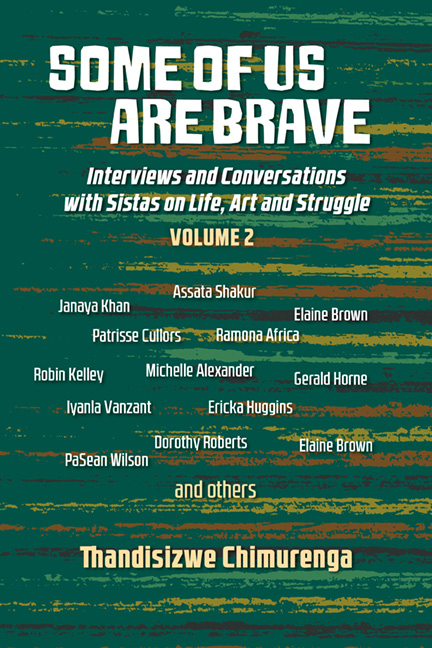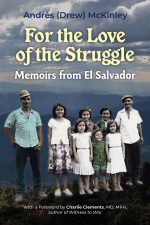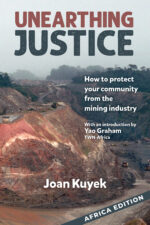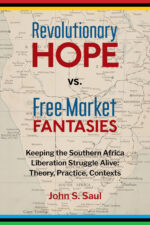Some Of Us Are Brave (Vol 2): Interviews and Conversations with Sistas in Life and Struggle
A society born of white supremacy and patriarchy must, by definition, ignore the voices of Black women. We know that unfortunately, such an attitude will also naturally seep into every stratum of that society
Part of the contribution to correct that was the centering and airing of Black women’s voices through Some of Us Are Brave: A Black Women’s Radio Program that aired on Pacifica’s Los Angeles radio station (KPFK) from 2003 until 2011.
The program covered a myriad of issues by amplifying the voices of a broad cross-section of Black women. Some of those voices have been preserved here in this volume. In addition to capturing various moments in time with a variety of women, this is also a means of taking the intellectual production of and about Black women out of the hands of institutions that are both fundamentally anti-Black and anti-woman.
Volume 1 contains interviews under the headings The Shoulders on Which We Stand and Black Lives Have Always Mattered.
Volume 2 covers Black Women’s Health, Bruthas on Sistas, and Sistas in Struggle.
USD $ 5.00 USD $ 23.00Price range: USD $ 5.00 through USD $ 23.00
A society born of white supremacy and patriarchy must, by definition, ignore the voices of Black women. We know that unfortunately, such an attitude will also naturally seep into every stratum of that society
Part of the contribution to correct that was the centering and airing of Black women’s voices through Some of Us Are Brave: A Black Women’s Radio Program that aired on Pacifica’s Los Angeles radio station (KPFK) from 2003 until 2011.
The program covered a myriad of issues by amplifying the voices of a broad cross-section of Black women. Some of those voices have been preserved here in this volume. In addition to capturing various moments in time with a variety of women, this is also a means of taking the intellectual production of and about Black women out of the hands of institutions that are both fundamentally anti-Black and anti-woman.
Volume 1 contains interviews under the headings The Shoulders on Which We Stand and Black Lives Have Always Mattered.
Volume 2 covers Black Women’s Health, Bruthas on Sistas, and Sistas in Struggle.
| Book Format | Print Book, PDF |
|---|
Customer Reviews
1-5 of 1 review
Only logged in customers who have purchased this product may leave a review.










Njoki Wamai
This anthology is a part of two volumes. Volume 1 focuses on pioneering women, their legacies, resilience, and contributions in the arts and liberation of black people in spite of racism and structural injustice. Volume 2 explores black women’s health and chronicles the resilience of black women (Chimurenga 2023). The two volumes challenge the erasure of black women’s agency in history while appreciating the transformative power of feminist struggles. This anthology seeks to correct their invisibility by providing evidence of black women’s agency and resistance to racism and patriarchy, captured across the chapters in the book. Despite the passing of Civil Rights Acts in the 1960s resulting from the civil rights movement, black communities continue to face racial discrimination in the USA. Methodologically, Chimurenga uses life histories and in-depth interviews to centre women in the arts as co-producers of knowledge and culture. She argues that black women have been central to women’s liberation in the USA through their roles in advancing political freedoms, the arts, health rights, and the rights of persons who are Lesbian, Gay, Bisexual, Transsexual, Queer, and Intersex (LGBTQI), using an intersectional lens. — Njoki Wamai, Assistant Professor, United States International University-Africa, Kenya. GENDER & DEVELOPMENT 2025, VOL. 33, NO. 1, 279–281